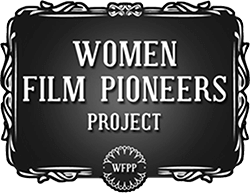CFP: Doing Women’s Film and Television History V – “Forming Histories/Histories in Formation”
The conference Doing Women’s Film and Television History is back for its fifth edition, and will be held at Maynooth University, May 20-22, 2020!
Deadline for proposals: October 11, 2019
From the conference website:
The theme of this conference–‘Forming Histories/ Histories in Formation’–aims to foreground issues pertaining to the production, curation and archiving of women’s histories in film and television as well as the methods for, and approaches to, producing and shaping these histories as they form. More particularly, much can be learned from the diversity of practices, experiences and narratives of women’s film and television history as they pertain to: national, transnational, world and global histories; neglected, peripheral or hidden histories; organisations such as museums, archives and universities; collectives, groups and movements such as #MeToo; local communities and community media; emergent forms and platforms; and historical approaches to women’s reception of film and television as well as historicising current practices and experiences of reception, fandom and consumption.
This three-day conference casts the net wide so that it can capture a range of experiences, practices, industries, nationalities and voices that are situated in relation to women and their histories. The conference provides a platform for those working in and researching film, television and media more generally as well as those invested in the production of these histories and narratives of the past and as they materialise.
We invite papers that can provide added richness to the theme of ‘Women in Film & Television,’ and are, in addition, especially interested in the following areas:
▪International and comparative perspectives on women in film and television
▪Histories of women’s creative practice, production and technical work and film/cinema and television work more generally in various national, regional, or local contexts; transnational film and television; migration and diasporas
▪Approaches to histories of women’s indigenous production, including Third Cinema and grassroots film and television production
▪Representations of women in historical film and television
▪Female audiences, reception, fandom of film and television
▪Considerations of methodological and theoretical approaches to the study of women in film and television and their audiences
▪Archival research methods and approaches including feminist archiving practices
▪Use of recently established or historically neglected women’s media archives
▪Artefacts and ephemera in women’s archives: moving image, photographic and digital media, scripts, merchandise, etc.
▪Considerations of how gender intersects with race, class, ethnicity, in relation to film and television production, reception or representation
▪Revisiting production and labour through the lens of #MeToo and #TimesUp, including historical formations of, and historicising, such movements
▪Changing meanings of women and womanhood as reflected and shaped by the interventions of women in film and television as producers, critics, and campaigners.
▪Teaching women’s film and television history; feminist pedagogies; the politics of education and training; women’s experiences of moving from education to employment in film and television
Please submit proposals of 250 words along with the paper’s title and a 50-word biography. Presentations should be no longer than 20 minutes, including clips and images. We welcome pre-constituted panels of three to four presenters (with panel title and abstract of 150 words), proposals for roundtables or workshops and presentations from researchers, practitioners, creatives and industry professionals. Deadline for proposals Oct 11th 2019. Email: dwfthv@gmail.com
Visit the website for the conference and follow its Twitter account for updates.
